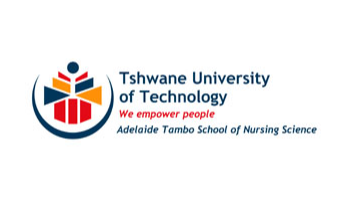The Library:
Library membership is open to staff members, students and external members. External members include, but are not restricted to members of the Council; higher education institutional members (including GAELIC members); prospective master and doctoral students; guest lecturers, research staff and post-doctoral fellows; honorary members; alumni students; attendees of non-State-subsidised programmes (NSSPs); private members; members of the community; members in terms of a formal agreement; and exchange students. Contact the library for more information on the conditions of membership, membership fees and period of membership.
Research and Innovation:
Research and Innovation (R&I) is regarded as an integral part of the activities of all academic staff. Not only does it ensure authoritative instruction with a career focus, but it also enhances the quality of teaching, contributes to the development of technology and makes the University’s expertise available to the broader community. By its very nature, R&I need to comply with international standards to be able to make a credible contribution to South African society. In exploring new avenues of R&I excellence, TUT is committed to the highest quality. For this purpose, we benchmark our efforts against those of other leading institutions, both locally and internationally.
The Directorate of Research & Innovation (DRI) is the operational arm of the Central Research and Innovation Committee (CRIC) and functions as a central institutional advice and support service for mobilizing resources for R&I, and aims to ensure effective administrative support systems. Its key performance areas include the development of R&I policy, strategy and procedural documents; facilitation of R&I focus and niche areas; communication and reporting on research-related information; facilitation of research-related training; as well as ensuring total quality management for R&I services. The Directorate is a single unit with offices at the Pretoria Campus of TUT and serves all the campuses of the institution.
Jamp:
Joint African MTech Programme (JAMP) in Comparative Local Development. The JAMP is a fully interdisciplinary programme comprising the application of economics, law, sociology and political science to the analysis of local development. The programme seeks a holistic approach to local development and provides an integrated framework for analysis and intervention. It approaches and addresses development primarily at the local level, thereby promoting the ongoing localisation of economic growth and productivity and the democratisation of local government and decentralisation of governance in countries in the region. The programme is directed primarily towards existing and future practitioners (from the public, private and civil society sectors), and is thus oriented towards direct application and real world impact.
The JAMP is an initiative of a consortium of four Southern Africa universities and one European university: the Tshwane University of Technology (South Africa), the University of Botswana (Botswana), the Polytechnic of Namibia (Namibia), St. Thomas University (Mozambique), and University of Trento (Italy). The programme will be accredited in all the partner countries and jointly conferred by all partner institutions. The teaching faculty are drawn from a pool of experts resident at participating institutions in the region as well as experts located at institutions in other regions of the continent and internationally. This increases the overall knowledge pool and research expertise of the teaching faculty. The programme comprises its own regional research institute, a facility for initiating, stimulating and supporting regional research projects comprising multiple institutions and teams of individual researchers.
The JAMP runs over twenty four months and is taught via a combination of distance learning, contact sessions, internships, project activity and original empirical research. The programme will employ multiple sites for instruction, internship and research activity. The medium of instruction for all teaching activities will be English. Internships activities will be conducted in any of the applicable languages of the Southern African region. The maximum time allowed to students to complete the JAMP programme and graduate is 3 years.
Research Facilities:
Institute for Economic Research on Innovation (IERI)
The Institute for Economic Research on Innovation (IERI) does policy research in the political economy of knowledge to promote sustainable economic growth, social development and political democracy. IERI is based in the Faculty of Economics and Finance of the Tshwane University of Technology.
